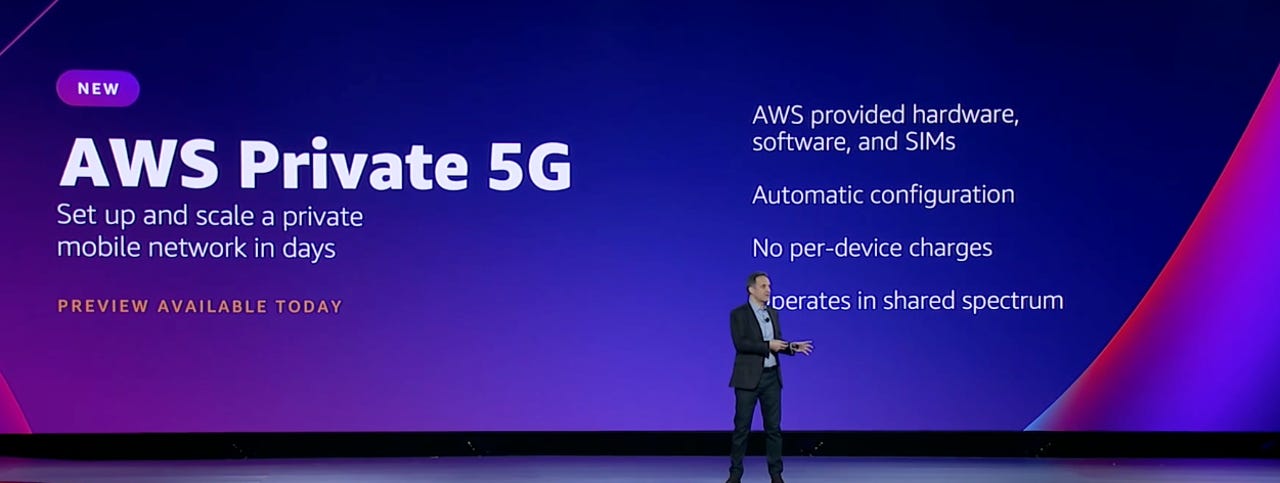AWS CEO announces new private 5G service at re:Invent 2021


AWS CEO Adam Selipsky announced that the company is launching AWS Private 5G, a new service designed to make it easier for organizations to deploy and manage their own private mobile network.
5G
AWS private 5G will allow enterprises to set up and scale private mobile networks in days, according to Selipsky, who explained that AWS will send customers the required hardware, software and SIM cards needed to build it out.
Most enterprises use local wired ethernet or Wi-Fi networks for connectivity, but the explosion in devices has put a strain on these systems. Efforts to create mobile networks are also complicated by the need for telecom expertise and mazes of partnerships or vendors.
Selipsky said customers will need to say where they want the network built and the capacity they need before the service is turned on and auto-configures. The service is available for preview now in the US.
"It sets up a mobile network that can span anything from your corporate office to a large campus to a factory floor or a warehouse. You just pop the SIM cards into your device, and viola, everything is connected," Selipsky told the re:Invent 2021 audience.
"Ordering additional capacity, provisioning additional devices, or managing access permissions can be done easily just using the AWS console. And best of all, you can provision as many connected devices and users as you want without any per-device charges. With private 5G, it operates in the shared spectrum, so you don't even need a spectrum license."
The AWS CEO added that the service was built to allow companies to start small and scale up depending on need with pay-as-you-go pricing.
In a statement, AWS explained that it will deliver and maintain the small cell radio units, servers, 5G core and radio access network (RAN) software, and the SIM cards needed to set up a private 5G network and connect devices.
"Many enterprise networks are constrained by increasing growth in users, devices, and application demands. Increased video content, new applications that require ultra-low latency connectivity to end-user devices, and thousands of smart IoT devices demand extended coverage, more capacity, better reliability, and robust security and access control," the company said.
"Customers want to build their own private 5G networks to address these limitations, but private mobile network deployments require customers to invest considerable time, money, and effort to design their network for anticipated peak capacity and procure and integrate software and hardware components from multiple vendors. Even if customers are able to get the network running, current private mobile network pricing models charge for each connected device and make it cost-prohibitive for use cases that involve thousands of connected devices."